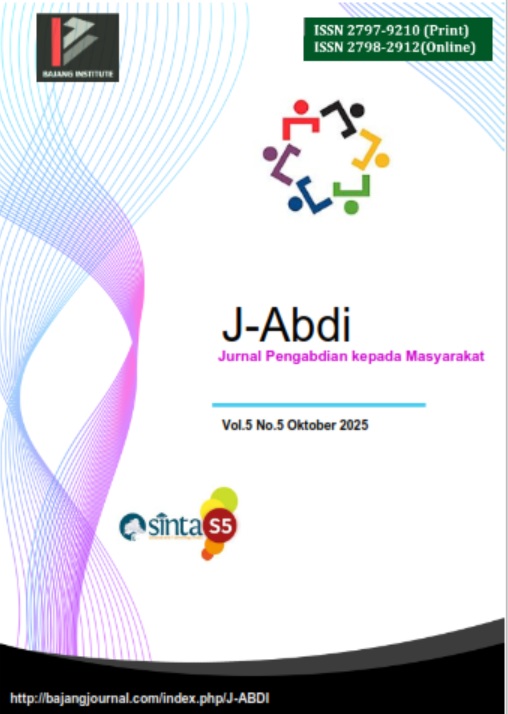PKM MAHASISWA KKN: PEMBERDAYAAN MASYARAKAT MELALUI KEMANDIRIAN PANGAN BERBASIS POTENSI LOKAL BERDAMPAK DESA SENDANA KABUPATEN MAMASA
DOI:
https://doi.org/10.53625/jabdi.v5i5.11369Keywords:
xxAbstract
Food self-sufficiency is the ability to produce food domestically, supported by food security institutions that can guarantee adequate food needs at the household level, in terms of quantity, quality, safety, and affordability, supported by diverse food sources in accordance with local diversity. Therefore, the work program regardingcommunity empowerment throughImproving social welfare and marketing of community products (UMKM), as well as Food and energy independence based on local potential in Sendana Village. This Community Service Program (PKM) is one form of implementation of the Tridharma (Three Pillars of Community Service) in higher education. As a form of PKM activity, students implement a program tailored to the local situation where they are conducting their Community Service Program (KKN). Sendana Village is one of the areas where the program is implemented from start to finish to ensure the growth of UMKM and food availability. This demonstrates the positive response from the government and residents, and residents are following directions.
References
Chaereni, R., Agustanto, D., Wahyu, R.A., Nainggolan, P. (2020). Ketahan Pangan Berkelanjutan. Jurnal Kependudukan dan Pembangunan Lingkungan. 1(2) : 70-79. http://jkpl.ppj.unp.ac.id/index.php/JKPL/article/view/13.
Kemendiktisaintek, 2025. Kampus berdampak
UU 11 tahun 2020. Tentang ketahanan pangan,
UU 41 tahun 2009. Tentang kemandirian pangan.















